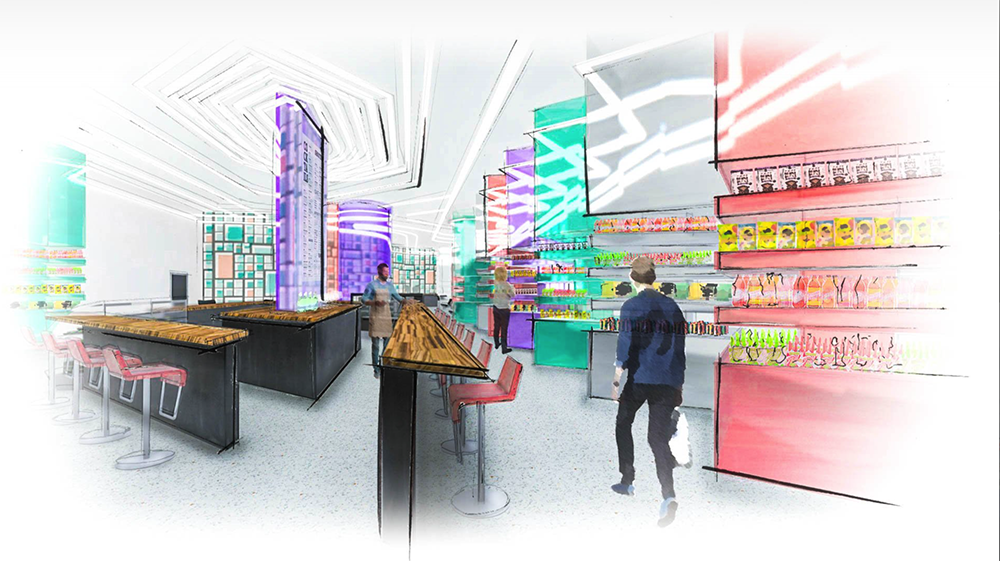The Department of Interior Architecture and Design is proud to highlight graduate students Kailey Carter and Corrie Ostrander who have been named two of Metropolis Magazine’s Top 100 Future Designers for 2021! Nominated by associate professor Marlo Ransdell and professor Jill Pable respectively, these graduate students have risen to national recognition through this prestigious award.
Each year, Metropolis Magazine meticulously searches for the top 100 graduating interior design and architecture stu dents across North America to be featured on the Metropolis Future 100. Ranging from some of the top architecture and interior design schools in the U.S and Canada, those who acquire a spot on this list are recognized by Metropolis as being “leaders on campus who are sure to be forces in the industry.”
dents across North America to be featured on the Metropolis Future 100. Ranging from some of the top architecture and interior design schools in the U.S and Canada, those who acquire a spot on this list are recognized by Metropolis as being “leaders on campus who are sure to be forces in the industry.”
Kailey Carter landed a coveted spot on this list with her nostalgic 1990’s pop culture inspired grocery store titled ALL THAT! Gourmet Grocer. “I am honored to be included in this impressive group of rising leaders that is defining and reimagining the practice of architecture and interior design,” said Carter. Encouraged by the decade’s digital takeover, Carter’s design playfully elevates the once mundane grocery setting into a vibrant tech-filled experience. This is evident through mechanisms such as take-home meal kits dispensed via vending machines.
“Kailey Carter’s research centers on developing supportive spaces for maternal well-being in the NICU environment,” said associate professor Marlow Ransdell. “She brings a developed level of research on human behavior and a detailed sense of design to her innovative solutions.”

Corrie Ostrander was recognized for her work on an untitle d conceptual project that lays out the design to transform a campus of abandoned buildings into a rehabilitation facility to treat people suffering from addiction. “I was extremely excited to be chosen as one of Metropolis Magazine’s Future 100 and was thrilled to see the bright future that the design field has showcased through everyone’s incredible work,” said Ostrander.
d conceptual project that lays out the design to transform a campus of abandoned buildings into a rehabilitation facility to treat people suffering from addiction. “I was extremely excited to be chosen as one of Metropolis Magazine’s Future 100 and was thrilled to see the bright future that the design field has showcased through everyone’s incredible work,” said Ostrander.
This inspiring and beautiful design showcases the power that design has to transform and impact lives. Ostrander included a flexible chapel design that can be utilized for all religions and is open to all the restorative properties of nature.
“Corrie Ostrander’s work is of consistently high caliber, and her thesis that addresses behavioral health spaces brings important attention to this area of great need for people,” said Jill Pable, chair of FSU’s Department of Interior Architecture and Design. “Her empathy for others distinguishes her skills as a designer.”
